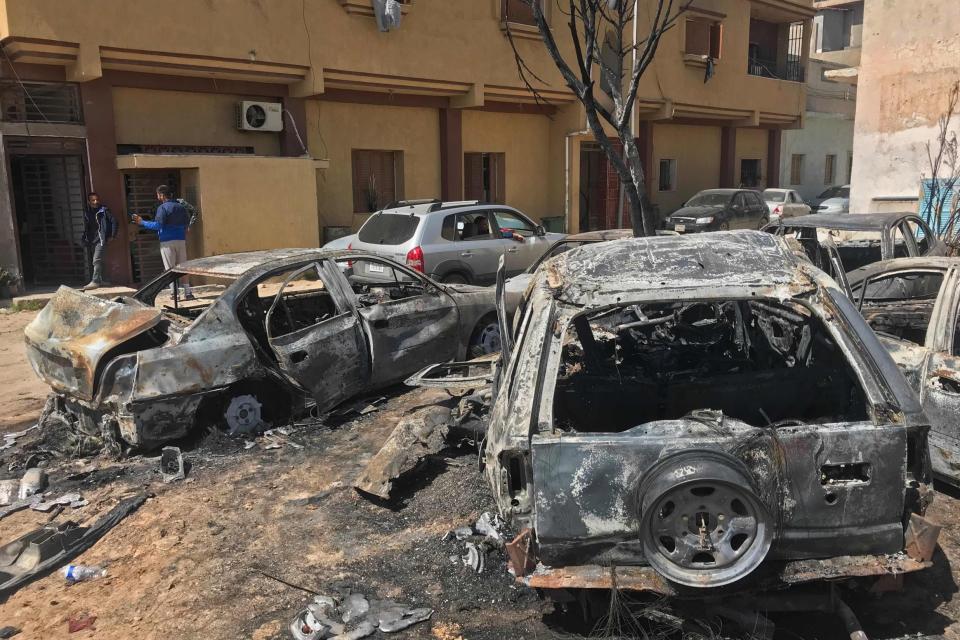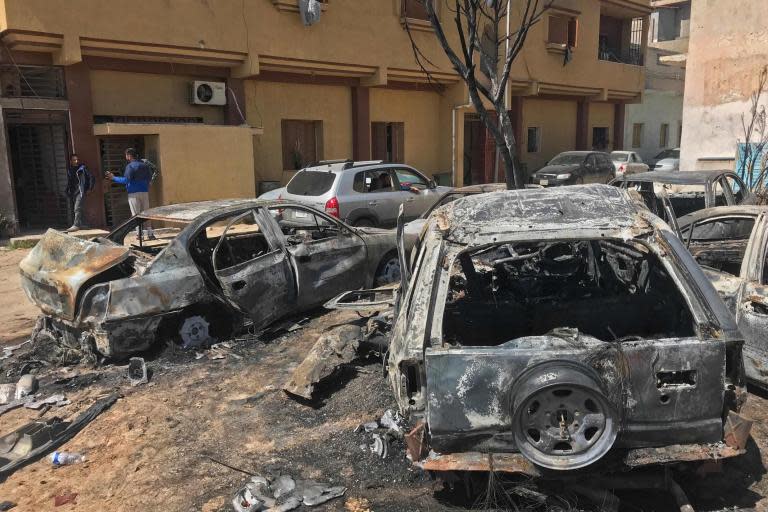Trump and Libya: White House egged on warlord who intensified attack on Tripoli
President Donald Trump encouraged a Libyan warlord to continue “fighting terrorism” shortly before he intensified his two-week assault on the North African nation’s capital and its United Nations-backed government, the White House disclosed on Friday.
The conversation between Mr Trump and Khalifa Haftar, a self-described “field marshal” backed by Russia, Saudi Arabia, the United Arab Emirates and Egypt, took place on Monday.
But the White House revealed the news on only on Good Friday, as lawmakers, media and the public headed to their families for Easter weekend.
According to the White House, Mr Trump recognised Mr Haftar’s "significant role in fighting terrorism and securing Libya’s oil resources.”
The two men also “discussed a shared vision for Libya’s transition to a stable, democratic political system."
The phone call was not coupled with a conversation with prime minister Fayez al-Serraj, head of the UN-backed and internationally recognised government in Tripoli. It amounts to a strong US endorsement of Mr Haftar’s offensive, which is backed by autocratic Arab regimes in Cairo, Riyadh, and Abu Dhabi that are cosy with the White House. It also places the US squarely in the middle of a conflict from which it has mostly stayed aloof, deferring to the United Nations, France, the UK and Italy on Libya.
Mr Trump's vocabulary in the brief statement disclosing the phone call also appeared to adopt the rhetoric used by Mr Haftar, who has labelled Mr Serraj, a mandarin from a highly regarded Libyan family, a "terrorist."
A day after the phone call, Mr Haftar’s collection of militias and armed groups, called the Libyan National Army, intensified their assault on the capital, launching airstrikes and rockets deep into the capital, allegedly causing civilian casualties.
Already more than 200 people have been killed and 20,000 displaced in the fighting.
On Thursday the United States joined Russia in scuttling an attempt at the United Nations Security Council to pass a resolution calling for an end to the fighting truce, an apparent reversal of years of Washington policy to back Mr Serraj’s government.
Mr Serraj told the BBC on Thursday he was frustrated with the inaction of the international community and warned the conflict could lead to the reemergence of ISIS. He has complained that Mr Haftar's international allies are violating arms embargoes by funnelling him weapons.
Mr Haftar launched his offensive on 4 April apparently hoping for a quick victory after seizing several nearby towns and winning control of much of the south. But he has become bogged down as powerful rival western Libyan militias have come to the aid of the capital.
In addition, his forces have under pressure in the south, with some military analysts suggesting that he is becoming overstretched. At least four of his fighters were killed and six injured in an 18 April attack on a base in the south that pro-Haftar media outlets attributed to the forces allied with Tripoli authorities.
Mr Haftar launched a 2014 offensive to take control of Libya’s number two city of Benghazi from a collection of Islamist militias, predicting victory within weeks. The conflict stretched three years, and destroyed much of the city.


